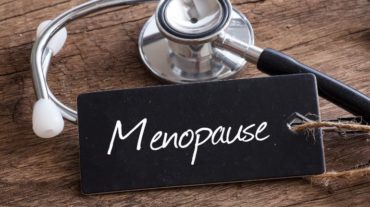[ad_1]
Cardiovascular disease (CVD) is the leading cause of death in postmenopausal women. Meanwhile, more women die from heart disease and stroke than from other causes, including breast cancer. Instead of taking this problem seriously, it is often ignored. Also, women tend to be less prone to any kind of intervention than men.
Cardiovascular disease is known as a major problem for middle-aged men. In fact, it affects women and men equally. It is important to solve this problem in time, because it is believed that this delay is necessary for the protective effect of estrogen in the years before menopause. Let’s understand the relationship between menopause and cholesterol levels.
Learn about menopause first
Menopause is the period of life when menstruation ends. As estrogen levels decrease, so does the protective effect. Therefore, the probability of heart related problems increases to some extent.
Now you know about cholesterol
Cholesterol is a wax-like fat that our body produces. It is divided into two parts –
Low-density lipoprotein (LDL) cholesterol: LDL is called bad cholesterol. These build up in the walls of blood vessels, while their narrowing can lead to serious problems, such as chest pain.
High-density lipoprotein (HDL) cholesterol. HDL: HDL is considered as good cholesterol. These are important for health and the chances of heart disease and stroke are also very low.

Learn the link between menopause and cholesterol here
Menopause affects all women at some point. Its timing depends on genetics, age, diet and smoking habits of women.
For many years before menopause, estrogen levels decline. Estrogen deficiency can cause many health problems. Along with this, it is important to be aware of menopause symptoms such as hot flushes. However, the effects of menopause on the cardiovascular system do not last long.
In fact, due to changes in hormone levels during menopause, many changes can be seen in the body. As the level of LDL cholesterol increases, the estrogen hormone decreases.
According to research, sex hormones like estrogen reduce the effects of heart disease before menopause.
According to research, the levels of total cholesterol, LDL cholesterol and triglycerides in people in the early stages of menopause are significantly higher than in other women.

Learn how you can control your cholesterol levels even after menopause
Cholesterol levels can be monitored during menopause, before and at any time in life.
Apart from taking the right medicine to lower cholesterol levels, a healthy lifestyle is also important. Maintaining cholesterol levels is very important, it can be the main cause of heart problems.
1. Diet
Some foods help to maintain cholesterol. Plant sterols in certain foods, such as plant foods, prevent the body from absorbing cholesterol. On the other hand, shellfish, lean red meat, sardines, fish and other foods rich in omega 3 fatty acids contribute to healthy cholesterol levels.
To avoid this problem, everyone should consume enough omega 3 fatty acids in their diet. Eating foods high in trans fats and saturated fats increases LDL cholesterol. Everyone should avoid consuming these oils as much as possible, especially if they are in menopause.
2. Lifestyle
A healthy lifestyle is incomplete without regular exercise. Physical activity also helps lower cholesterol levels. According to experts, at least 150 minutes of moderate aerobic exercise each week can keep cholesterol levels in balance. At the same time, it is very important for smokers to focus on reducing smoking to reduce cholesterol.

3. Weight
Maintaining a healthy weight is very important for maintaining healthy cholesterol levels. Being overweight or obese increases the level of LDL cholesterol in the body.
also noted
LDL cholesterol increases in the body of women after menopause and menopause. At the same time, the reduction of estrogen hormones in the body during menopause can also be the reason for this.
Estrogen hormones help regulate cholesterol levels in the liver. Elevated cholesterol levels do not cause any visible symptoms, but it can lead to various health problems, such as heart disease and heart attack.
[ad_2]



Leave a comment